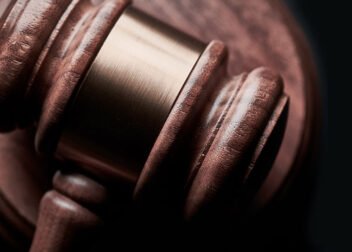Corporate Criminal Liability: The Why and the How
Corporate criminal liability (CCL) is a critical concept in the legal world, holding companies accountable for unlawful activities conducted by their employees or executives. As corporations have grown in size and influence, the need for legal frameworks to prevent and punish corporate wrongdoing has become more urgent. But why is corporate criminal liability so essential, and how does it work in practice? This article delves into the reasons behind CCL and explains how legal systems enforce it.
The Why: The Importance of Corporate Criminal Liability
- Corporate Power and Influence Modern corporations wield significant power, often controlling vast resources, impacting markets, and shaping societal trends. With such influence comes the potential for misconduct that can have far-reaching consequences—whether through environmental harm, consumer fraud, or financial manipulation. Corporate criminal liability ensures that companies, not just individual employees, are held accountable when their actions harm the public interest.
- Deterrence A core reason for enforcing corporate criminal liability is to deter unlawful behavior within organizations. Knowing that a company itself could face severe penalties—such as hefty fines, reputational damage, or even dissolution—encourages businesses to foster a culture of compliance and ethical behavior. Corporate executives are more likely to implement safeguards if they understand that the company as a whole will be held responsible for illegal activities.
- Fairness and Accountability Without corporate criminal liability, only individuals involved in criminal activities within the company would face consequences, potentially allowing the business to escape responsibility. CCL ensures that companies profitably engaged in illegal conduct cannot simply distance themselves from their wrongdoing by blaming rogue employees. Holding the corporate entity accountable ensures that justice is served comprehensively, not just on a personal level.
- Compensation for Victims When corporations engage in criminal acts, victims often suffer significant financial, physical, or emotional harm. Corporate criminal liability enables courts to order restitution, fines, or damages that can help compensate affected parties. This mechanism ensures that businesses take financial responsibility for the consequences of their actions.
The How: Mechanisms of Corporate Criminal Liability
The way corporate criminal liability is enforced depends on various legal frameworks that vary across jurisdictions. However, several general principles guide its application.
- Vicarious Liability One of the most common approaches to corporate criminal liability is vicarious liability, where a company is held liable for the actions of its employees. Under this principle, if an employee commits a crime while acting within the scope of their employment and intending, at least in part, to benefit the corporation, the company can be held responsible. This approach ensures that businesses cannot escape accountability for crimes committed by lower-level employees.
- The Identification Doctrine Another principle used in corporate criminal liability is the identification doctrine (or “directing mind” doctrine), which applies to high-ranking officials or directors who act on behalf of the corporation. Under this approach, if senior management or those who are considered the “mind” of the corporation engage in or approve criminal activities, the corporation itself can be held liable. This doctrine recognizes that high-level executives are often the ones directing the actions of the company and should bear responsibility for its illegal conduct.
- Strict Liability In some regulatory contexts, corporate criminal liability operates on a strict liability basis. This means that a corporation can be held responsible for criminal offenses regardless of intent or knowledge of wrongdoing. For example, environmental laws may impose strict liability on companies that cause pollution, regardless of whether the pollution was accidental or intentional. Strict liability is commonly used in cases where public safety or welfare is at stake, encouraging companies to maintain high standards of care and compliance.
- Compliance Programs and Mitigating Factors To encourage businesses to prevent criminal activity, many legal frameworks allow for mitigating factors if a company can demonstrate that it had effective compliance programs in place. If a corporation can prove it took reasonable steps to prevent criminal conduct (such as training employees, implementing ethical guidelines, and setting up internal reporting systems), this can reduce the penalties it faces or potentially prevent criminal liability altogether. The presence of such programs shows that the company is actively working to prevent misconduct and should not be fully liable for actions taken by rogue employees.
- Fines, Penalties, and Other Sanctions When a corporation is found guilty of criminal wrongdoing, courts can impose a range of penalties. Fines are the most common form of punishment and can range from modest amounts to multi-million-dollar judgments, depending on the severity of the crime. However, other sanctions may include:
- Restitution: Requiring the corporation to compensate victims for losses.
- Probation: Placing the company under court supervision with mandated reforms.
- Corporate Dissolution: In extreme cases, the court may order the dissolution of the corporation, especially if it was set up primarily to engage in illegal activities.
- Deferred Prosecution Agreements (DPAs) Deferred Prosecution Agreements are increasingly used to handle cases of corporate criminal liability. Under a DPA, the corporation admits wrongdoing and agrees to fulfill certain obligations, such as paying fines or implementing compliance reforms. In exchange, prosecutors agree not to pursue criminal charges, as long as the company complies with the terms of the agreement. DPAs offer a balanced solution by holding companies accountable while allowing them to avoid criminal prosecution, which could be devastating to the business and its employees.
Challenges and Criticisms of Corporate Criminal Liability
While corporate criminal liability is essential, it is not without its challenges and criticisms.
- Difficulty in Proving Corporate Intent Holding a company liable for criminal actions can be complex, especially when trying to prove corporate intent or knowledge of wrongdoing. Corporations are not individuals with moral agency, making it difficult to attribute specific criminal intent to an abstract legal entity.
- The Impact on Innocent Stakeholders Punishing corporations for criminal conduct can sometimes harm innocent stakeholders, such as employees, shareholders, or customers. For example, large fines or sanctions could result in job losses or decreased shareholder value. Critics argue that corporate criminal liability should balance punishment with the potential harm to those not directly involved in the misconduct.
- Evasion Tactics Some companies attempt to evade criminal liability by creating complex organizational structures, outsourcing liability to subsidiaries, or relying on lower-level employees as scapegoats. Addressing these tactics requires sophisticated legal approaches to ensure that corporations cannot avoid responsibility through legal loopholes.
Conclusion
Corporate criminal liability plays a vital role in ensuring that businesses are held accountable for unlawful conduct, preventing harm, and promoting ethical behavior. As companies grow more powerful and interconnected, the importance of this legal framework will only increase. By understanding both the why and the how of corporate criminal liability, companies can better navigate the complexities of compliance and risk management, while society benefits from a legal system that promotes justice and fairness.



